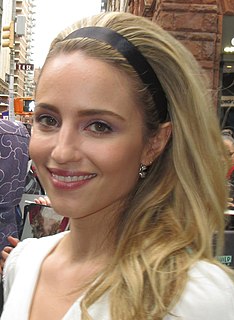Цитата Мэри Эллен Марк
Я остаюсь с пленкой, с серебряными отпечатками и без фотошопа. Вот как я научился фотографии: вы делаете свой снимок в камере. Теперь так много сделано в компьютере... Я не против цифровых технологий; Я просто думаю, что для меня кино работает лучше.
Связанные цитаты
Различные студии до сих пор снимают на пленку с цифровым зерном и негативами DI, это не идеально. Мы действительно должны быть полностью пленочными или полностью цифровыми. Но, как говорится, старый способ зернистости в камере, теперь вы можете вносить изменения, как художник. Это опасно, потому что можно испортить фильм, можно переиграть. Мы все смотрели фильмы и думали: «Что это, черт возьми, такое?»
Если вам нужно пристегнуть камеру или попасть в небольшое пространство, то имеет смысл использовать цифровую камеру. Я действительно думаю, что цифровую камеру можно использовать художественно, но это может быть хорошо, только если вы используете пленочную технику. У пленки есть зернистость, а у цифры пиксели, и разница не так уж велика, но цифра не отменяет необходимости создавать сцену, правильно ее освещать и тратить время на обдумывание кадра.
Если я когда-нибудь снова задумался о режиссуре, я имею в виду - я не знаю, даже мысль о режиссуре фильма для меня странная, потому что в этом смысле я чувствую своего рода антиматематику. Анти - Я не люблю, когда вещи имеют смысл, я предпочитаю, чтобы они не имели смысла, поэтому, если бы я снял фильм, в нем не было бы никакого смысла, и никто бы его не увидел. Так что, может быть, я просто буду снимать маленькие фильмы дома на свой телефон, которые никогда не будут выпущены.
Экспонометром не пользуюсь. Мой личный совет: потратьте деньги, которые вы бы вложили в такой инструмент для кино. Покупайте ярды пленки, мили. Купите всю пленку, которую сможете достать. А затем поэкспериментируйте с ним. Это единственный способ добиться успеха в фотографии. Тестируйте, пробуйте, экспериментируйте, чувствуйте себя уверенно. В операторской работе в первую очередь важен опыт, а не техника. Если у вас есть чувство фотографии, вы можете сделать пятнадцать снимков, пока один из ваших противников испытывает свой экспонометр.
Помню, как сложно было выполнять определенные операции с желатиновыми отпечатками. Несколько недель назад я спросил своего желатинового принтера в Picto: «Можете ли вы сделать только тени немного ярче?» Он посмотрел на меня очень странно, потому что в Фотошопе вы просто поворачиваете кнопку, и мы уже к этому привыкли, но при печати серебром на желатине это совершенно невозможно.
Как только появились цифровые технологии, я мог мгновенно видеть свои изображения прямо на камере. Я думаю, что это делает вас лучшим фотографом, потому что вы можете сразу увидеть, закрыты ли глаза вашего объекта или вы неправильно экспонировали его, слишком ли он яркий или темный. Вы можете исправить это прямо здесь. С пленкой вы не узнаете, пока не вернете отпечатки, если что-то испортится, и тогда вы ничего не сможете сделать. Это было огромным преимуществом.

































